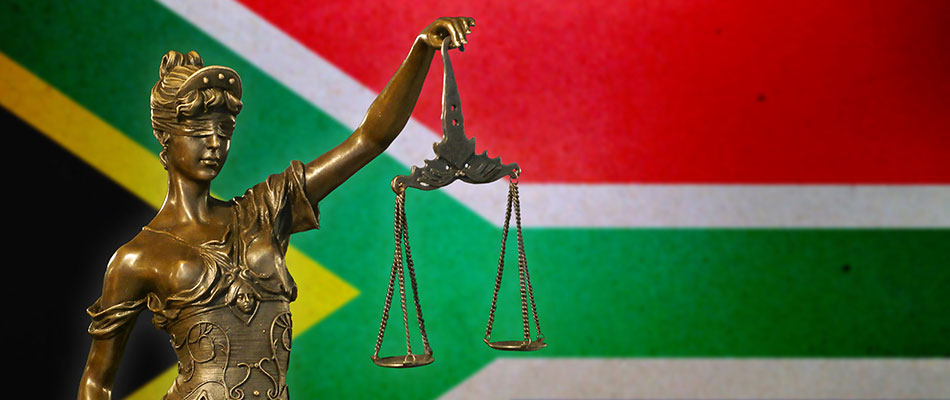An LLB is a popular degree for those aspiring to become lawyers or work in the legal field. It provides knowledge about laws, rights, and justice. In South Africa, completing an LLB takes four years, and it prepares you for various legal careers, whether in court or as a legal advisor.
Some universities offer specializations in areas such as environmental law or corporate law. If you aim to work as a lawyer in private practice, government, or business, starting with an LLB is essential. Studying law in South Africa is particularly important due to its unique legal systems.
When applying for an LLB degree in South Africa, the first step is to review the entry requirements. This article will outline these requirements, the application process, and options for financing your LLB studies in South Africa.
Table of Contents
- General Entry Requirements for a Bachelor of Laws (LLB) in South Africa
- University-Specific LLB Admission Requirements
- Matric Results and LLB Admission
- Alternative Pathways to Study Law in South Africa
- Language Proficiency for LLB Admission in South Africa
- Financial Considerations for LLB Studies
- Conclusion
- Bachelor of Law Entry Requirements in South Africa – FAQs
General Entry Requirements for a Bachelor of Laws (LLB) in South Africa
To get a Bachelor of Laws (LLB) in South Africa, you need to meet several academic and language qualifications. Here is a simple overview of the key requirements you should know:
Minimum academic qualifications
To meet the bachelor of law entry requirements, you’ll need specific matric subjects and grades. Students must meet certain basic requirements to apply for an LLB degree in South Africa. Many universities explain their bachelor of laws entry requirements on their websites, so students know what’s needed. Here’s a simple breakdown:
- Education
- It would help to have a National Senior Certificate (NSC) or something similar that qualifies you for degree-level studies.
- Subjects
- Most universities expect you to have good grades in subjects like English, Mathematics, or Mathematical Literacy.
- Points System (APS)
- A good APS score is often a key part of the bachelor of law entry requirements in South Africa. Some universities use an Admission Point Score (APS), where your NSC results are converted into points. You need to reach the minimum score set by the university.
- Language Skills
- Since the courses are usually taught in English, you need to show that you’re good at it, either through your school grades or a language test, if necessary.
Meeting the bachelor of law entry requirements is your first step toward starting a successful legal career.
Read more – What You Need to Know About South African LLB Law Admission Requirements
Required matric subjects
To meet the bachelor of laws entry requirements, focus on excelling in your matric exams and key subjects. Here’s a simple explanation of Matric required subjects for applying to an LLB:
- English
- For international students, meeting the LLB entry requirements South Africa may also involve English language skills. You must complete English in high school because it’s the primary language used in universities. English proficiency is often included in the bachelor of law entry requirements, especially for international students.
- Maths or Life Orientation
- Doing Maths or Life Orientation is a good idea, as universities often recommend these subjects.
National Senior Certificate (NSC) Requirements
The National Senior Certificate is your high school certificate; you have to attain one to be eligible to apply for an LLB in South Africa. From this, universities will draw on your results to derive the APS score and determine whether you have qualified for admission. An APS score of 30-36, depending on which University and what programme, qualifies one to apply for the LLB under most university conditions. Universities clearly explain their bachelor of law entry requirements, making it easier for students to apply.
University-Specific LLB Admission Requirements
Different universities have different bachelor of law entry requirements, so research is important. To get to the LLB Bachelor of Laws, you must pass Matric with a Bachelor pass or an NQF Level 4 qualification. When you pass English as your first language, you need at least 50%, and when it is your second language, at least 60%. Top universities for LLB in South Africa provide quality education and support for aspiring lawyers.
If you are international students coming from Africa, A-levels with a higher-level pass and at least 26 APS are necessary. Applicants without a Bachelor pass can still apply if they are over 23 years old, have at least three years of relevant work experience, possess a school leaving certificate (Grade 12 or O-levels), have completed short courses, and have passed English.
Comparison of LLB requirements across institutions
The LLB requirements vary slightly from one University to another in South Africa. Some universities may require higher APS scores, while others may have additional criteria such as a written test or personal statement.
The more demanding universities are UCT and Wits because of the high demand. It is essential to compare the LLB requirements at various universities to find the best fit for your academic strengths and goals.
Matric Results and LLB Admission
To pursue an LLB degree in South Africa, students must meet certain academic and language requirements. Key factors for admission include matric results, subject choices, and an Admission Point Score (APS). For those who do not meet the standard requirements, alternative pathways to gain admission are available.
Importance of Matric Results for LLB Entry
Matric results play a significant role in being admitted into an LLB programme. Universities use students’ National Senior Certificate (NSC) marks to compute their Admission Point Score (APS). The better the marks, the higher the APS score. A high APS score reflects the student’s academic prowess and preparedness for law studies at the University. Do well in your final exams at school to be accepted into the University.
Minimum APS (Admission Point Score) for LLB
APS refers to a point system employed by South African universities when scoring your matric results. Most universities need an APS score of more than 30 for LLB programmes. However, specific requirements vary with institutions, while some top universities often need a higher APS score. The six best subjects in your matric results form the scoring basis. Hence, it is better to be good in all subjects.
Alternative Pathways to Study Law in South Africa
If you don’t meet the bachelor of law entry requirements, you can explore alternative pathways like a Higher Certificate in Law. Universities offer some courses to prepare students for a university level of law education. You can apply to the LLB programme once you have completed the bridge course. This is for those individuals who need better APS scores or academic preparation.
If you don’t meet the LLB entry requirements South Africa, consider bridging programmes or higher certificates as alternatives:
- Bridging Courses
- Some universities offer bridging courses to help students catch up on the skills they need for law school. These courses cover essential basics to help you qualify for an LLB.
- Higher Certificate in Law
- If you don’t meet the LLB admission requirements, a Higher Certificate in Law can help you qualify. This introduces you to basic legal knowledge. Afterwards, this qualification can help you meet the requirements for applying for an LLB degree. Completing a Higher Certificate in Law can give you the foundation needed for further legal studies.
Language Proficiency for LLB Admission in South Africa
Pursuing law studies in South Africa prepares students for a wide range of careers in the legal field. Language proficiency is vital when applying for an LLB in South Africa, especially in English. Here’s what you need to know:
English Language Requirements: Since most LLB courses are taught in English, universities require applicants to have good English skills. This usually means you must have done well in English during high school (NSC or an equivalent).
Proof for International Students: If you are from outside South Africa, you may need to show proof of your English skills. This can be done by taking exams like IELTS or TOEFL or showing that your previous studies were in English.
Financial Considerations for LLB Studies
When planning your studies, consider not only the LLB tuition fees but also additional expenses like books and transport. Here’s a simple breakdown of financial considerations for LLB studies in South Africa:
Tuition Fees for LLB programmemes
- The cost of studying law generally ranges between R30,000 and R50,000 per year, depending on the university. International students may face higher fees.
Scholarships and Bursaries
- You can apply for scholarships or bursaries to help pay for your studies. These are available based on your academic results or financial need. Many universities and private organisations offer financial aid, so checking the university websites for specific options is essential.
For students unsure about the bachelor of law entry requirements, most universities offer guidance and support during the application process.
Conclusion
Understanding the bachelor of law entry requirements helps you prepare and apply with confidence. It’s a step towards becoming a lawyer and engaging in other related occupations in the law sector. Indeed, though the process appears challenging, there are many opportunities to bridge this gap through courses or scholarships.
Regenesys Law School’s holistic Bachelor of Laws programmeme prepares you for the challenges of a legal career.
Bachelor of Law Entry Requirements in South Africa – FAQs
How long does it take to complete an LLB degree?
It shall take 4 years in a full-time student programme but could be longer for a part-time.
Is there a scholarship for a law student?
Many colleges and institutions offer scholarships or bursaries to cover tuition fees.
Is there specialisation in a particular area of law?
Some universities permit specialisation during studies in a particular field, such as corporate law, human rights law, environmental law, etc.
What careers can one pursue with an LLB degree?
A student can become a lawyer or legal advisor or engage in business, government, or non-profits.
Are international students eligible for LLB programmes?
Yes, if they fulfil the eligibility requirements and English proficiency requirements.






